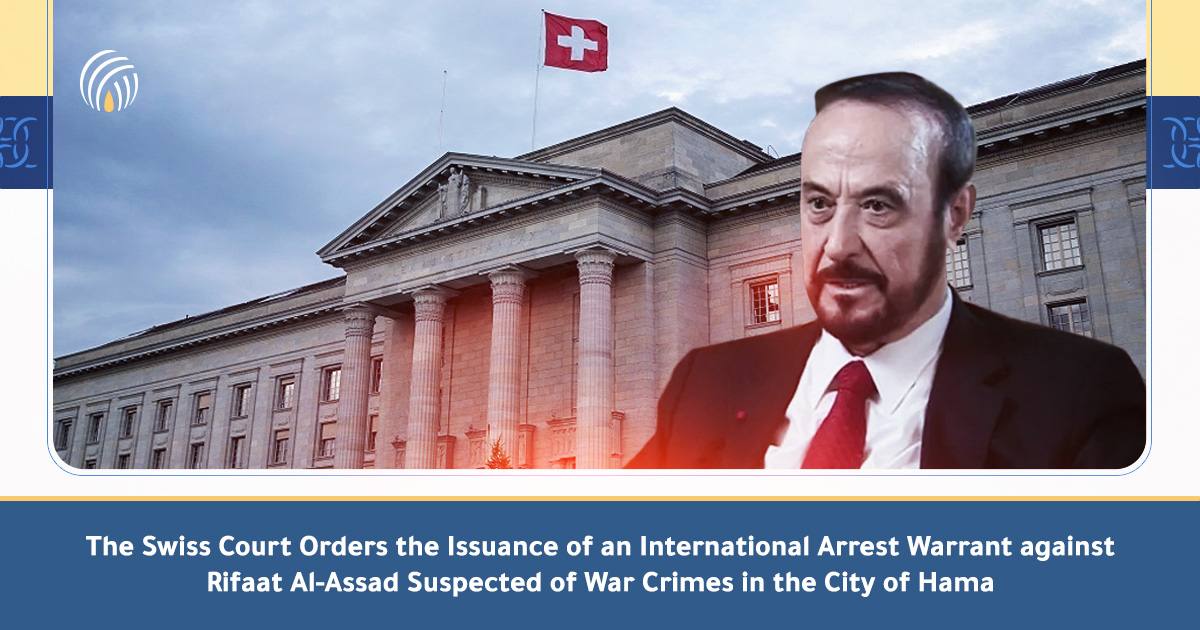The Syrian Center for Media and Freedom of Expression (SCM), along with a number of Syrian human rights organizations, contributed to building the lawsuit file, in cooperation with Trial International, which had filed the complaint in 2013.
August 17, 2023

*by: Syrian Center for Media and Freedom of Expression (SCM)
PARIS – 17 August 2023. The Swiss Federal Criminal Court (FCC) has ordered the Federal Office of Justice (FOJ) to issue an international arrest warrant for Rifaat Al-Assad, the uncle of Syrian president Bashar Al-Assad for his alleged role in committing war crimes in the Syrian city of Hama in February 1982. Rifaat Al-Assad was a commander of the Defense Brigades and vice president to his brother, former Syrian president Hafez Al-Assad.
The Syrian Center for Media and Freedom of Expression (SCM), along with a number of Syrian human rights organizations, contributed to building the lawsuit file, in cooperation with Trial International, which had filed the complaint in 2013.
While SCM welcomes this recent development and stresses on the importance of holding the perpetrators of war crimes in Syria accountable, it regrets the length of the procedures and investigations, which allowed the suspect to escape before being tried in Europe, and to return to Syria. Despite having a court ruling issued against him in France in 2021 sentencing him to four years in prison and confiscating his property for ill-gotten gains, Rifaat succeeded in escaping from justice by taking advantage of the slow procedures and using his wealth and connections. His return to Syria was under suspecious cicumstances and continues the state of impunity in the country.
SCM also stresses the importance of speeding up the trial of the suspect – in this lawsuit and others related to grave violations committed in Syria – as every delay deprives the victims of access to justice, which they have been seeking for more than four decades. Although we emphasize the importance of such trials as a gateway to justice for the victims and recognition of the violations and crimes committed against them, these cases are not a substitute for launching a national path for transitional justice that completely ends the state of impunity, which contributes to ending the vicious cycle of violence and increasing the chances of building sustainable peace in Syria.
